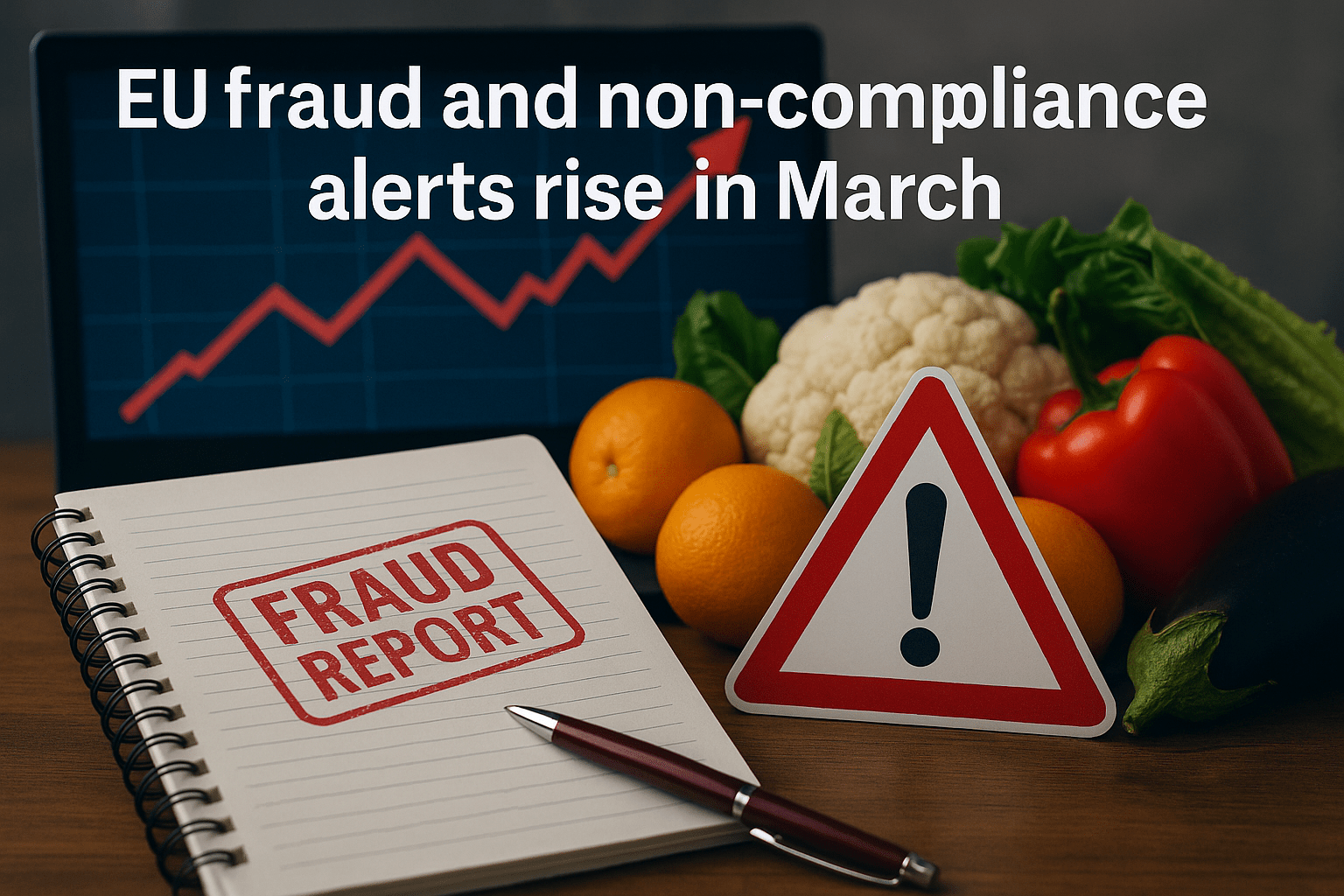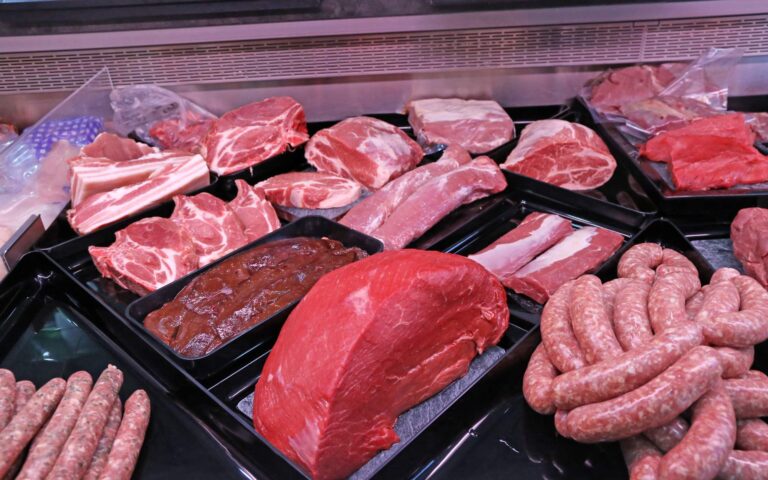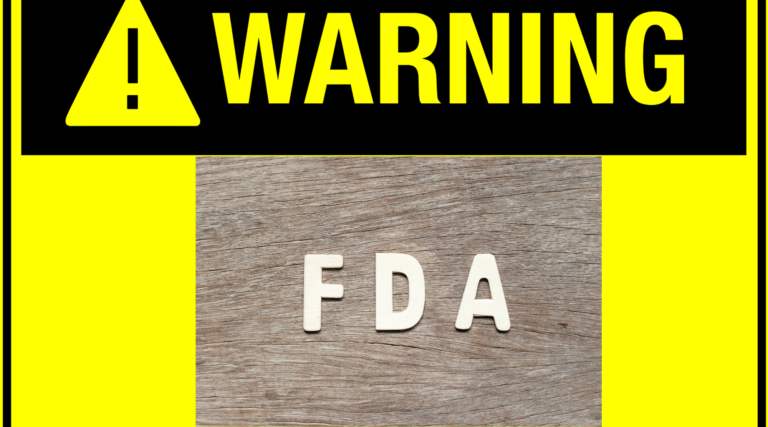European authorities reported a slight increase in food fraud and non-compliance cases in March 2025, with 237 alerts, up from 214 in February, though still below the record high of 345 in March 2024.
These alerts—compiled in the European Commission’s monthly fraud report—highlight potential frauds and regulatory violations that may trigger further investigations by EU Member State authorities. The data comes from shared intelligence across the Alert and Cooperation Network (ACN), including input from the Rapid Alert System for Food and Feed (RASFF), Administrative Assistance and Cooperation Network (AAC), and the Agri-Food Fraud Network (FFN).
Purpose of the Alerts
These notifications help national authorities:
- Implement risk-based controls targeting food fraud.
- Support the food industry with vulnerability assessments.
- Identify and mitigate emerging risks across the supply chain.
Key Product Categories and Findings
- Fruits and vegetables topped the list with 81 notices, primarily due to excess pesticide residues.
- Dietetic foods, supplements, and fortified products followed with 34 alerts.
- Cereal and bakery products came third, with 13 cases.
Most violations were uncovered during border inspections and routine market controls. However:
- 26 cases were identified through internal company checks.
- 11 cases were flagged by consumer complaints.
- 3 incidents stemmed from whistleblower reports.
- 1 case resulted from an investigation into foodborne illness.
Notable Incidents and Trends
United States-Linked Alerts (6 cases):
- Presence of benzoic acid in soft drinks.
- Detection of titanium dioxide and cannabidiol (CBD) in sweets.
- Use of unauthorized ingredients in food supplements.
Product Tampering Cases:
- Sodium nitrate in sausages from Bulgaria.
- Mechanically separated meat (MSM) from Poland.
- Sulfur dioxide in turkey meat from Ireland.
Use of Banned Sudan Dyes:
- Sudan 1 in chili powder from China.
- Sudan 3 in paprika powder.
- Mixed Sudan dyes in red pepper powder from Syria.
Document and Record Falsification:
- Altered records on olive oil from Turkey and ground meat/MSM from the Netherlands.
- Forged organic certifications on German products.
- Missing commercial documents for pork tenderloin from Hungary.
Additional Fraud Cases:
- In Ireland, a horse was presented for slaughter with falsified medical records.
- In Poland, poultry meat was moved by an unauthorized operator under unsuitable conditions.
- Germany reported an unregistered company trading dates.
- Latvia flagged an unauthorized caviar and fish operator.
- Animal-origin products mislabeled as non-animal products were identified from Thailand.
- In the Netherlands, 145 sheep went missing en route to a slaughterhouse.
- In Hungary, 200 pigs were never delivered to their destination.
Common issues across these alerts included:
- Use of unauthorized ingredients.
- Traceability gaps.
- Products bypassing border checks.
- Pesticide residues exceeding legal limits.
Food Innovation Spotlight: 2025 Young Inventors Prize Finalists
In other news, the European Patent Office announced the finalists for the 2025 Young Inventors Prize, showcasing breakthrough ideas to improve food safety and reduce waste.
Spain: Real-Time Freshness Monitoring Labels
Pilar Granado, Pablo Sosa Domínguez, and Luis Chimeno have developed biodegradable smart labels that detect bacterial growth on food in real time. These labels contain molecular indicators that change color as bacteria produce certain compounds, helping consumers and retailers prevent food poisoning and reduce spoilage.
Uganda: Shelf-Life Extending Sachets
Sandra Namboozo and Samuel Muyita created VOC-releasing sachets designed to extend the shelf life of fruits. Placed in boxes during storage or transport, the sachets suppress ethylene, slowing ripening. In field trials with Uganda’s National Agricultural Research Organization, mangoes treated with the sachets stayed fresh for 33 days, compared to just 11 days without them.
The winners of the three main prizes will be revealed during a ceremony in Iceland on June 18, and the public can vote online for the People’s Choice Award.
Source: FSN
Reach out to Fresh Group Food Safety And Quality Consulting for any inquiries related to food quality and safety.




